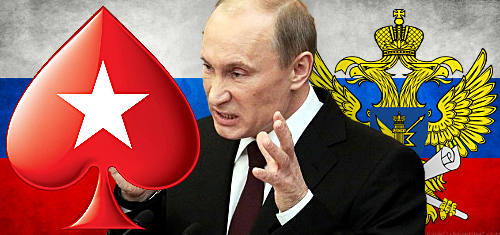 Russian authorities plan to give regulators more powerful tools to combat online gambling sites serving Russian punters without a local license.
Russian authorities plan to give regulators more powerful tools to combat online gambling sites serving Russian punters without a local license.
Last September, Russian communications watchdog Roskomnadzor imposed blocks on a couple dozen gambling sites linked to both domestic and international operators, as part of a clampdown on banned sites offering all manner of unauthorized material, including certain types of porn, pirated intellectual property and the like.
On April 26, Russia’s Ministry of Communications released a proposed amendment to federal law that sought to “address the deficiencies identified as a result of enforcement of rules to limit access to sites on the Internet containing illegal information.”
The text accompanying the amendment explains that the operators of restricted sites have been informing users of ways to circumvent the IP-blocks imposed by Russian authorities, including through the use of ‘mirror’ sites that alter the offending domain just enough to evade the digital censors.
The amendment would require internet service providers to speedily block such mirror sites, while search engines would be required to scrub all references to the offending operators.
The Ministry is seeking public discussion on the amendment until May 16, with an eye towards having the enforcement mechanisms in place by November 2016.
RUSSIA PUTS POKERSTARS ON NOTICE
Meanwhile, Roskomnadzor continues to update its list of officially unapproved sites, and this week’s additions include domains linked to familiar international names such as Bet365, BetUS, GVC Holdings’ Sportingbet and Casino Club brands, Betsson’s Kroon Casino brand, along with domestic operators Fonbet and 1xbet.
Also making the grade were three sites linked to Amaya Gaming’s PokerStars brand, including Pokerstars.com, updatead.pokerstars.eu and realchips.pokerstarscashier.com.
For the record, Stars was first added to the list in 2014, and has earned 46 mentions since its debut, although half of these domains – which include many ‘mirror’ type variants – were added within the past month, which, if nothing else, suggests that Russia is taking a much closer interest in the company.
Amaya has made no secret of wishing to acquire the legal right to operate in Russia, from which PokerStars derives a significant percentage of its players. However, at present, the government appears to be interested in authorizing only online sports betting, not poker.
The recent flurry of PokerStars-related additions to Russia’s register of prohibited sites could pose significant problems for Amaya’s New Jersey-licensed online operations, similar to those stemming from Australia’s recent decision to take more aggressive steps against operators deemed to be serving the market without authorization.
Last month, New Jersey’s Division of Gaming Enforcement (DGE) announced a policy that allowed its online licensees to continue to operate in so-called ‘grey’ markets, provided the licensees weren’t the subject of “affirmative, concrete actions to actively enforce” online gambling restrictions in these markets.
It’s unclear how much more explicit Russian authorities need to get to confirm their desire to have PokerStars cease its activities in their country. Assuming Amaya has no intention of cutting off its Russian revenue stream, it’s equally unclear how the company will be able to legally justify Stars’ continued operations in Russia.
Amaya isn’t alone in potentially facing fallout from the updated Russian list. GVC is currently sweating its own DGE inspection stemming from its acquisition of Bwin.party digital entertainment, which is licensed to operate in New Jersey. With both Sportingbet and Casino Club in Russia’s sights, the DGE may find itself with little option but to reject GVC’s application, which in turn would make it doubly hard to give PokerStars a pass.
